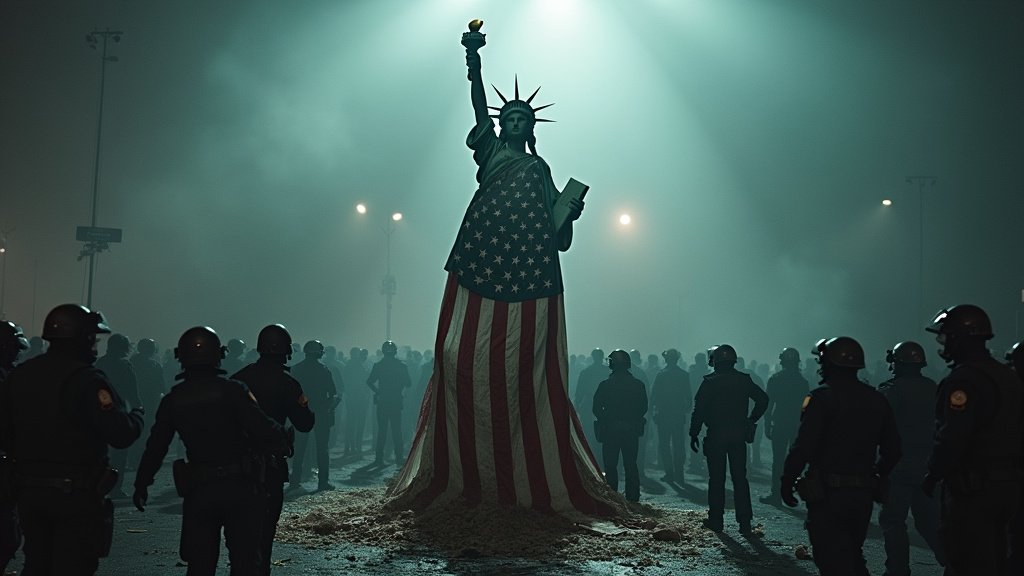A legal challenge has been mounted against the National Endowment for the Arts (NEA) by a coalition of arts organizations, escalating tensions surrounding cultural funding and artistic expression in the current political climate. The lawsuit, filed by groups primarily supporting transgender and non-binary communities, contests new grant requirements imposed by the federal agency.
These revised guidelines are alleged to align with directives from President Trump’s administration, specifically an executive order aimed at prohibiting the promotion of what is described as “so-called gender ideology.” The plaintiffs argue that these restrictions constitute an unconstitutional infringement on free speech, effectively placing a “gag on artist speech” that, according to their legal representation, “has had a ripple effect across the entire art world.”
Legal Challenge Launched Against NEA
The core of the lawsuit centers on the NEA’s updated criteria for awarding federal grants. Arts organizations seeking funding must now navigate requirements that the plaintiffs contend discriminate against and silence artists whose work explores themes related to gender identity and expression, particularly within transgender and non-binary contexts. The legal action asserts that by conditioning funding on adherence to these restrictive content guidelines, the NEA is exceeding its statutory authority and violating the First Amendment rights of artists and organizations.
The American Civil Liberties Union (ACLU) is representing the plaintiffs in this significant case, underscoring the potential implications for artistic freedom and the independence of cultural institutions receiving federal support. The ACLU’s involvement highlights the civil liberties dimension of the dispute, framing it as a challenge against government censorship disguised as funding conditions.
Representatives for the arts organizations argue that their work is vital for reflecting and fostering understanding of diverse experiences within society. They contend that the new NEA rules not only jeopardize their ability to secure essential funding but also send a chilling message to artists across the country, discouraging the creation and presentation of work that touches upon sensitive or politically contested topics.
Protests Erupt at Kennedy Center
Separately but concurrently, the John F. Kennedy Center for the Performing Arts in Washington, D.C., became the site of public demonstration on Friday, March 7. Drag performers gathered outside the renowned cultural institution to protest recent actions taken by President Trump concerning its leadership and governance.
The demonstration by drag artists underscores the broader anxieties within the arts community regarding perceived political interference and shifts in cultural policy under the current administration. The protesters voiced their opposition to the changes at the Kennedy Center, viewing them as part of a pattern of actions targeting artistic expression and institutions that may not align with the administration’s cultural vision.
Turmoil in Kennedy Center Leadership
The protests at the Kennedy Center were precipitated by significant changes enacted by President Trump the previous month. Citing a need for leadership that better reflects his administration’s perspective, President Trump took the extraordinary steps of firing the Kennedy Center’s president and replacing its entire board of trustees.
Furthermore, President Trump appointed himself as the new chairman of the institution’s board. This move drew sharp criticism from various quarters, raising questions about the political independence of the nation’s premier center for the performing arts. In justifying these actions, President Trump stated that those removed “do not share our vision for a golden age.”
Critics argue that such direct intervention in the governance of a major cultural institution risks politicizing the arts and undermining the long-standing tradition of artistic independence. The swift and decisive nature of these changes at the Kennedy Center has fueled concerns about the future direction and programming of the institution, adding to the climate of uncertainty felt by many in the arts sector.
Broader Implications for Arts and Culture
While the lawsuit against the NEA and the protests at the Kennedy Center represent distinct events involving different branches of government action and public response, they are seen by many as interconnected manifestations of a wider struggle over the role and nature of arts and culture in American society. Both incidents highlight the friction between the administration’s stated objectives and the principles of artistic freedom and institutional autonomy cherished by the arts community.
The NEA lawsuit challenges the government’s ability to use funding as a means to regulate artistic content based on potentially ideological grounds. The Kennedy Center developments raise questions about the political appointment of cultural leadership and the potential for direct executive influence over prominent national institutions.
Together, these events signal a period of heightened contention for artists, arts organizations, and cultural institutions navigating the complex intersection of creative expression, government policy, and political ideology. The outcomes of the NEA lawsuit and the lasting impact of the changes at the Kennedy Center are poised to shape the landscape for federal arts funding and cultural leadership for years to come, with the arts community closely watching these developments.











